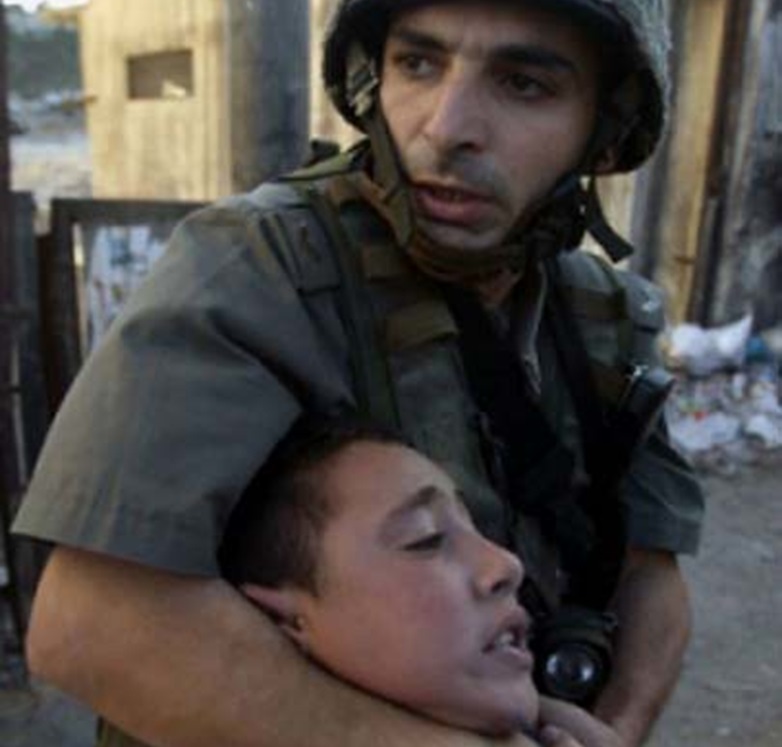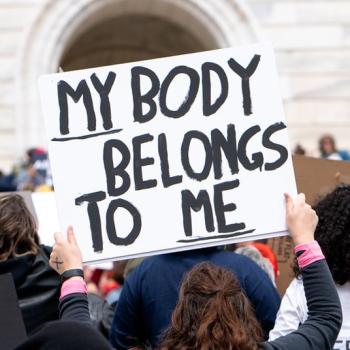“Antisemitism”—You keep using that word. I do not think it means what you think it means. Is it antisemitic to oppose Israel’s war in Gaza?

The charge of antisemitism is easy to lay on someone critical of the Israeli policy against Palestinians. Not long ago, someone called me antisemitic for sharing facts about Israel’s policy of abuse and apartheid. But antisemitism is different than simple opposition to Israeli policy.
Is it Antisemitic to Oppose Israeli Policy?
Some will argue that it’s antisemitic to oppose Israeli policy. Such a view is short-sighted, for five reasons:
-
Israel and the Jewish People are not the same thing.
If you look at the Jewish population by country, you’ll see that there are nearly twice as many Jews in the United States as there are in Israel. There are nearly as many Jewish people in all the other countries of the world (besides the US) as there are in Israel. So, almost three-quarters of the Jewish population (those who are eligible for Israeli citizenship) live outside of Israel. In truth, Israel doesn’t speak for, or represent all Jews. Therefore, a person can be completely pro-Jewish, while opposing the policies or even the existence of the nation-state of Israel.
-
It isn’t any more antisemitic to be against Israeli policy than it is anti-Arab to oppose the violence of Hamas.
Just as Hamas doesn’t represent all (or even most Arabs or Muslims), so the government of Israel doesn’t represent the Jewish people as a whole.
-
Loving Jewish people doesn’t mean you can never disagree with Israel.
One of the things I love about my wife is that she’ll call me on my bullshit. When you love someone, you want them to do better. If nobody ever called out the United States on its cruel policies of genocide and apartheid against Native Americans, then America would never learn. Instead, by now most Americans have come to recognize the historical wrongs done to Native Americans. It’s time we realized the same thing regarding the Israeli/Palestinian conflict. Because I love my Palestinian friends, I must speak out. Because I love my Jewish friends, I must speak out. Critique of someone you love isn’t the same as hating them. We must come to realize that in society today. Criticizing Israel isn’t being antisemitic. As humans, we all must learn to do better.
-
Many Christians say that Jesus’ followers must bless Israel if we ourselves want to be blessed.
They quote Genesis 12:3, where God calls Abram from his homeland stating, “I will make of you a great nation, and I will bless you and make your name great, so that you will be a blessing. I will bless those who bless you, and the one who curses you I will curse, and in you all the families of the earth shall be blessed.” Christians who say, “We’ve got to support Israel if we want God to bless us” fall prey to two errors. First, they confuse the Jewish people with the modern nation of Israel. Second, they support Israel for selfish motives, just so God can bless them. Such support is half-hearted at best, and mercenary at worst.
-
Christian Zionists believe that Jesus can only return bodily if there is a restored Jewish temple in Jerusalem.
Therefore, they say that Christians must support the nation of Israel if prophecy is to be fulfilled. This is patently false—I won’t get into it in this article, but click here to read “10 Reasons Dispensationalism is Unbiblical, Wrong and Deceptive” by Tudor Alexander. Supporting Israel just so a judgmental Jesus can return and judge the world, damning Jewish people for not believing in him as the Messiah is NOT pro-Jewish! If anything is antisemitic, it’s Christian Zionism!
What Is Antisemitism, then?
In the traditional usage, antisemitism is hatred against the Jewish people. This can involve an attitude, speech, or action against Jewish people that is motivated by hate. Large examples are the pogroms in Russia, Kristallnacht in Germany, and the Holocaust. Yet, antisemitism doesn’t have to be extreme acts of violence on a worldwide scale. PBS reports that antisemitic acts are on the rise in the US, and show signs that they will continue to increase. Antisemitism is anything that promotes hatred towards, or violence against, the Jewish people.
Interestingly, though, most people forget that Arabs are also Semites. The word “Semite” refers to those supposedly descended from Noah’s son Shem. Hebrew and Arabic are sibling languages. Arabs and Jews both trace their lineage from one man—Abraham. As such, any attitude, speech, or action against Arab people is also an example of antisemitism. If Palestinian attacks against Israelis are antisemitic, then Israeli attacks against Palestinians are antisemitic as well.
Family on Both Sides
In high school, my best friend was Palestinian. He came to live with our pastor, who was friends with a missionary in Israel. Shadi was unable to complete school in Beit Sahour (a suburb of Bethlehem) because Palestinian schools were closed during the First Intifada. We spent countless hours discussing the similarities between the US genocide against Native Americans, and the Israeli/Palestinian conflict. We graduated together in 1990 and continue to be friends (brothers) to this day. Shadi is a Christian, as are many Palestinians. He was the son of a headmaster at a Christian school in the West Bank. Shadi’s wife Mariam is the founder and president of iHolyLand Tours. You don’t get much more Christian than this family.
Not long ago, Shadi’s dear auntie was killed by an Israeli rocket that directly targeted civilians seeking shelter at a Christian church in Gaza. His mother’s other sister was seriously wounded in the attack. These innocent people did nothing to harm either the Jewish people or the state of Israel. They had no connection to Hamas. Yet, the Israeli government felt the need to show vengeance against all Palestinians because of the actions of Hamas.
After I spoke with Shadi on the phone, I called my dad to tell him about my friend’s aunt. He was sorry to hear about this. He also reminded me that my Jewish stepmother Maxine has family in Israel as well. The previous generation of her family went through the Holocaust. Many of her relations died in concentration camps. After World War II ended, they settled in Israel. Maxine spent happy times on a kibbutz in Israel, speaking fluent Hebrew. As of the last report, her family is safe in Ashkelon, which suffered attacks from Hammas on October 7.
Father Abraham Had Many Sons
So, I have family on both sides. Because of this, I offer critique—out of love and never out of hatred for either side. The only way ahead is for both sides to realize that they are siblings. When we were teenagers, Shadi taught me a song that is pertinent to the Israeli/Palestinian conflict. I remember it to this day:
Father Abraham had many sons,
And many sons had Father Abraham.
I am one of them, and so are you,
So let’s all praise the Lord!
Israeli/Palestinian Conflict: Mutual Antisemitism
Only when both sides remember that they are children of one father, and sit down at the table like siblings, will there be peace. Palestinians need to understand that they are harming themselves when they rage against their Jewish neighbors. Israelis must realize that they are damaging their own souls when they attack against Palestinians. Each side must comprehend that they are both antisemitic when they oppose one another. A similar principle applies to all people who engage in conflict. Though we might not all be offspring of Abraham, we all are children of the same God. Only when we learn to treat each other like siblings will we find peace.

















